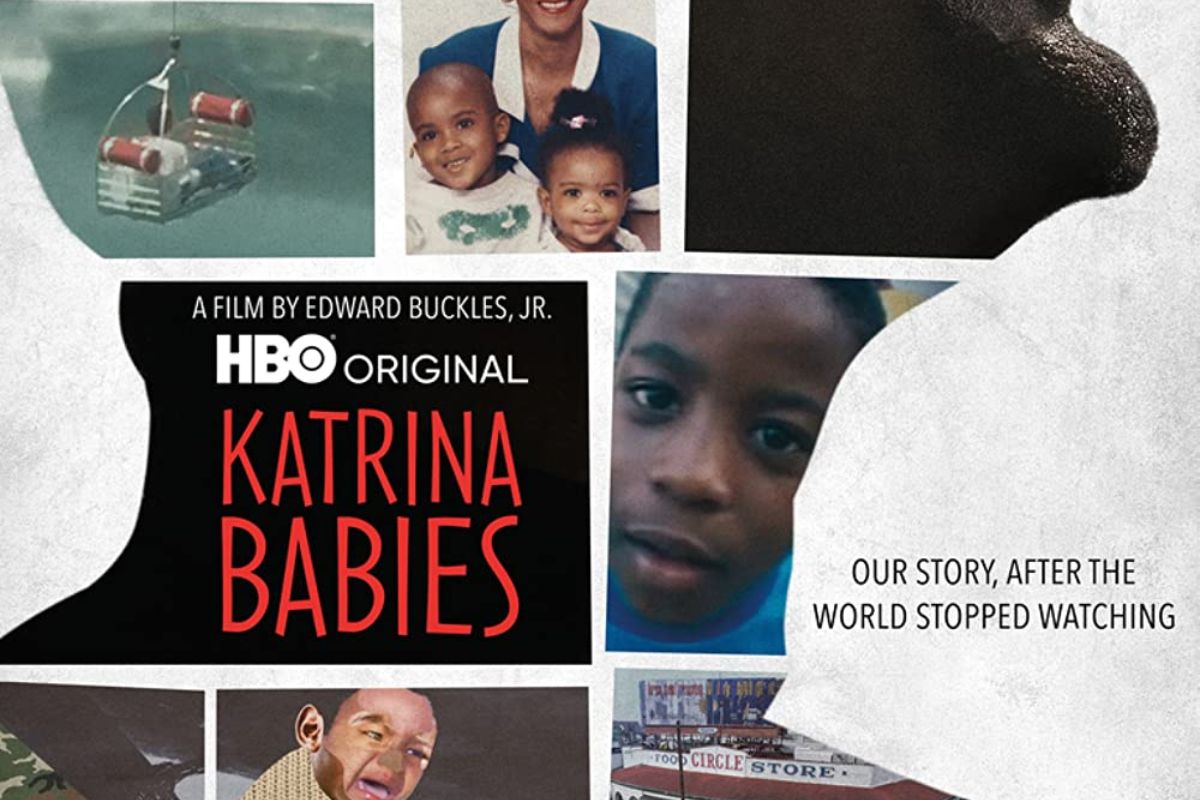‘Katrina Babies’ Hears From the Most Important Voices, Asks One Very Important Question
4/5

Recently Edward Buckles Jr.’s documentary Katrina Babies was distributed on HBO (and HBO Max.) His film sought to hear from those that were age 3- to 14-ish and there at the moment Hurricane Katrina hit New Orleans, Louisana, in 2005. While the documentary was released on August 24, 2022, he started gathering testimony in 2016 on the 10th anniversary of the devastating hurricane. In addition to hearing out their stories of what happened during and after the storm, he did something not many people do at the moment. He asked, “Are You Okay?”
Now, of course, I’m sure they were asked this question at some point in reference to physical harm or to get any information regarding helping more people. After all, the U.S., Canada, and Mexico came together to get these people out of New Orleans, but it really means something different to ask someone this when there isn’t an immediate threat, and you’re just asking them by showing genuine concern. That’s heartbreaking.
As a Katrina Baby himself, Buckles did unpack some of his trauma but also acknowledged that he fared better than most people from New Orleans, both in the short term (by leaving) and in the long term. The fact that this wasn’t an outside production group coming in to attempt to “objectively” document these stories is a testament to that. His photos, the set, and watching him go through footage as an adult couldn’t be replicated through an outside directorial lens.
For everyone impacted, the rippling effects that appeared during the storm and even over a decade later feel immeasurable. And yet, like many big national and international news stories, when the cameras stop watching, there are still people there who have no choice but to move forward, even in the rubble. In some ways, this was helpful because the national press did massive harm in the way they portrayed New Orleans residents depending on their race. However, that neglect was compounded by other issues that exacerbated mass incarceration and poverty.
This was a rough but necessary watch, especially as worsening natural disasters—thanks to human-caused climate change—will continue to displace and poison the most vulnerable people in and out of the U.S. Seriously, if you are going to only watch one or two documentaries this year, this one should be among them.
Always relevant
Despite being about two distinct moments of time, the film is scarily still relevant. At the surface level, these people and their children are still suffering. You see this in the documentary, and by nature of telling a coherent story, it is just a sliver of the tens of thousands of people weighed down by this trauma. Many people understand how losing a home, learning of an expensive medical issue, or even the death of someone close to them can destabilize someone’s life. During the ongoing pandemic, 140,000 kids in the U.S. (eight million worldwide) lost a primary caregiver due to Covid-19.
Beyond this one particular moment, gentrification is still happening in these places, and environmental racism is still a present threat both worldwide and domestically. Many of the countries with the lowest carbon footprints and who were most recently emancipated are those most at threat due to climate change. Most similar to Katrina, Pakistan contributes to .5% of the global CO2 emissions, and a third of the country is still underwater with no sign of abating. Death tolls are discussed, and the people have to rebuild under duress and/or become refugees with no time to grieve.
Domestically, look no further than the concentration of cancer alleys in low-income areas, the transcontinental oil pipeline rerouted to go through a Native American reservation, and the number of cities and communities with majority Black and brown residents with undrinkable water. While Jackson, Mississippi, was recently without clean water for weeks, this has been a known issue for decades.
From resources to help the kids in Pakistan and Mississippi, the money is needed, top-down. However, in the meantime, please donate to Alliance For Disaster Relief and these places for Mississippi.
(featured image: HBO)
—The Mary Sue has a strict comment policy that forbids, but is not limited to, personal insults toward anyone, hate speech, and trolling.—
Have a tip we should know? tips@themarysue.com